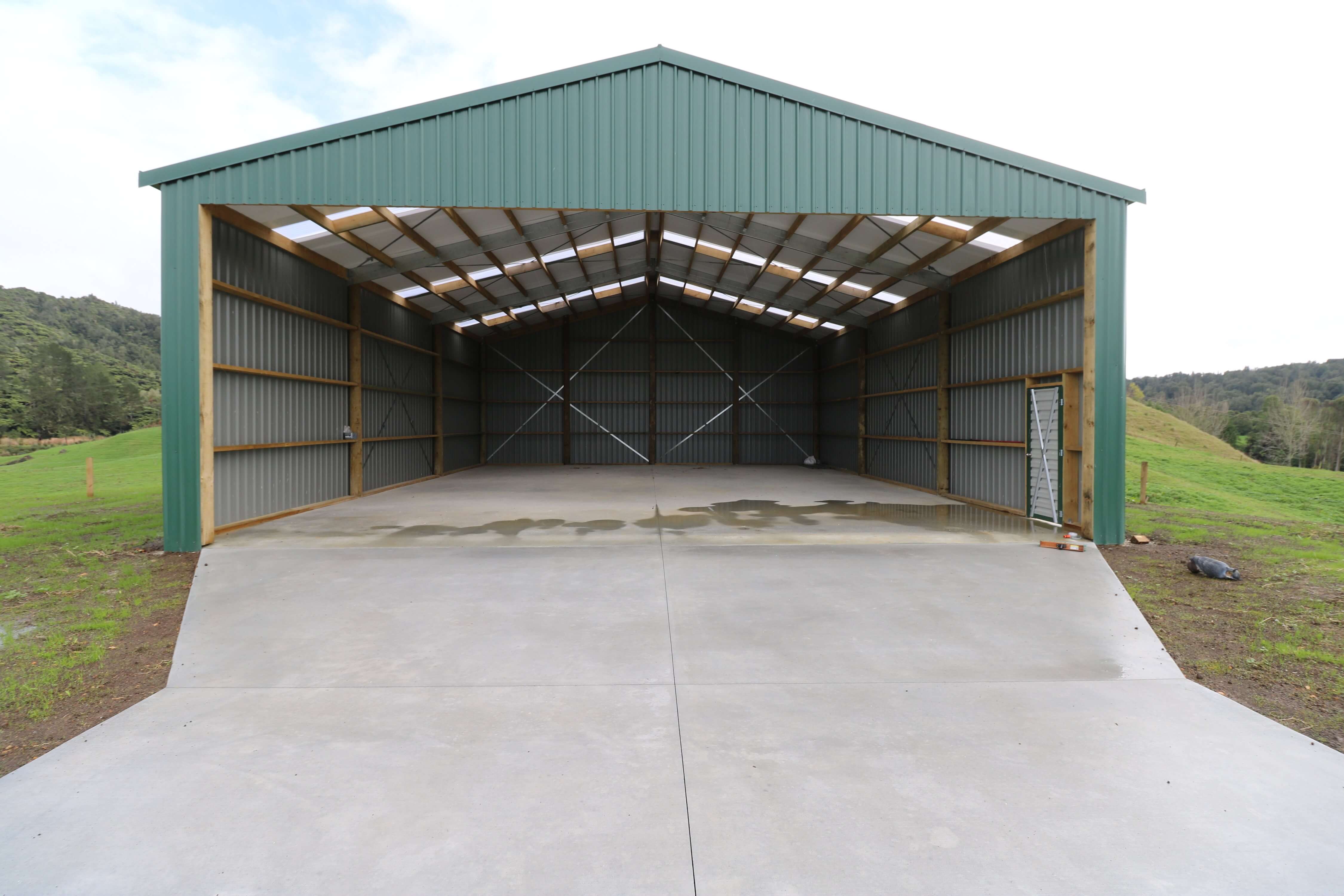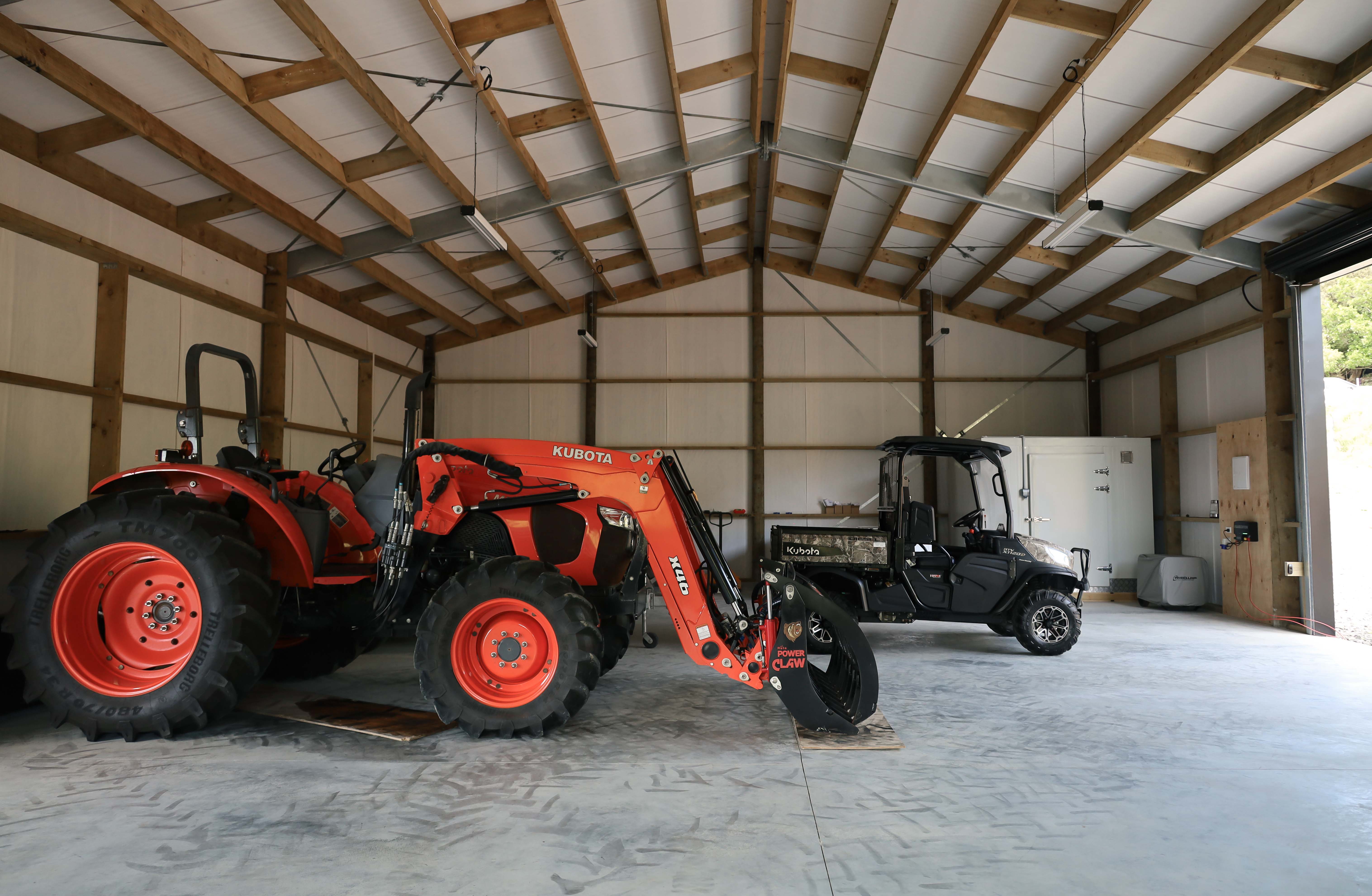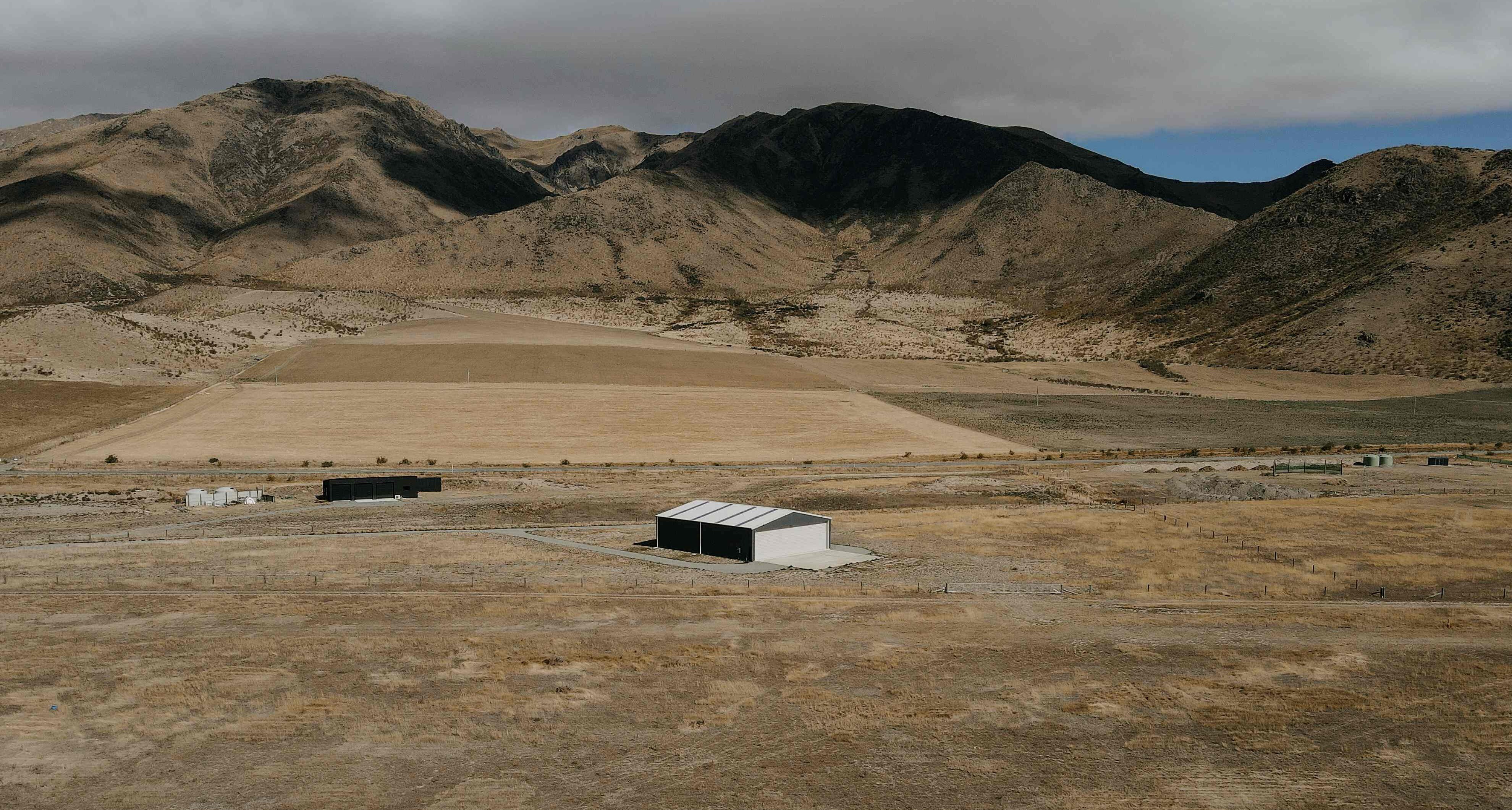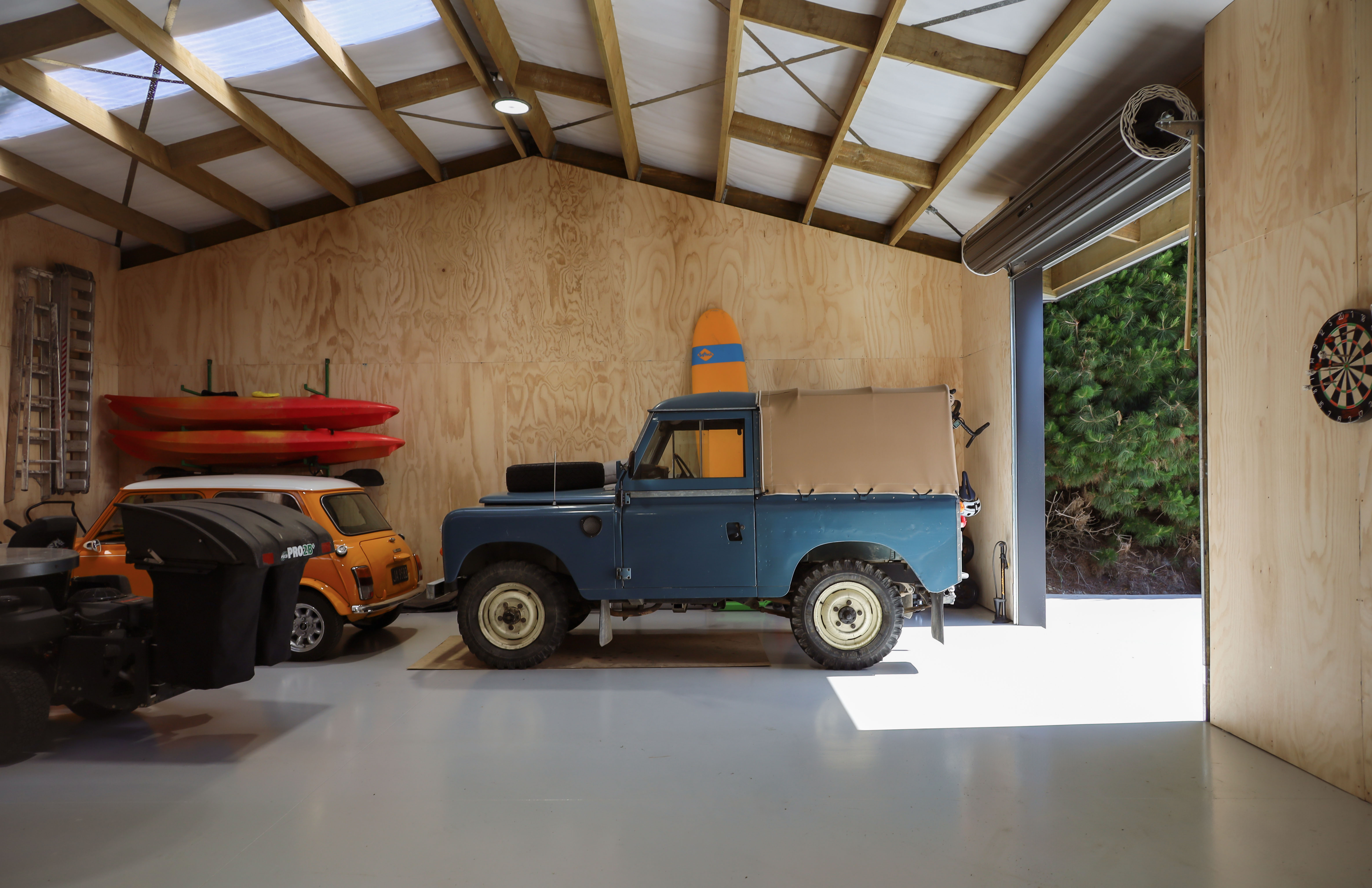
You have multiple quotes from separate shed providers, they’re for the same size shed, the specifications are all roughly the same, so why is one so much cheaper than the others?
Or perhaps you have seen an advertising flyer with some sheds listed that seem rather cheap and wondered how this could be so?
This is a scenario that we see quite often so in this blog we look at some reasons why initial costings can vary significantly and why some sheds are so cheap when compared with other options.
SHED Design
There are many shed providers in New Zealand, each offering unique designs and concepts, and all with varying options available. It may seem obvious but when comparing quotes, it is important to make sure you are comparing apples with apples. It is easy to fall into the trap of believing that all sheds are the same, a roof and four walls… and that’s it. Unfortunately, it is not quite as simple as that, and we need to dig a little deeper into the design.
Clearspan vs centre pole sheds
This is an area that is often overlooked, center pole sheds are almost always cheaper. They are easier to engineer, and a standard timber design structure can be used. This drives cost down as there is no need for clearspan beams which are a significant cost when compared to a clearspan shed.
The downside with centre pole sheds is that although the square meterage is the same as your clearspan option, you have significantly less usable space to work with. They also carry the risk of damaging gear as they can easily be driven into.
Lightweight Clearspan System
There are various construction methods to achieve a clearspan shed. Quite a number of shed companies use a lightweight beam system, such as 1-2mm thick roll form steel - often requiring extra knee or apex braces to add enough strength to meet the building code. This will reduce cost, however, sheds of this nature will often only comply with a 25-year building consent instead of 50-year building consent for other more robust types of construction. The braces for these light gauge beams then create bird nesting areas, with bird droppings landing on your machinery/items below causing damage. A structural steel beam like the Alpine steel rafter allows for bigger spans due to the strength, without needing an overly deep beam, therefore maximising height inside your shed
Exclusions and optional extras
There are several products that some shed providers don’t include in the initial quote but tend to offer them as an option. In some cases, the ‘optional’ products are required and have to be added to your quote at a later date.
For example, any fully enclosed bay should have building paper under the roof as it acts as a moisture barrier. Most providers will include this in the kit as an essential material but in some cases, it has been an optional extra which makes the initial cost of the shed cheaper at first glance. Some companies exclude the site-specific design and price the shed not considering the wind and snow load factors. Depending on your location, having the design revised to take this into account could add 10-20%, if not more. Some other examples include upgrades to coloursteel cladding from Zincalume cladding and the addition of the cost of concrete for foundations and even delivery.
Door size and quality
This is another one that can have a surprisingly big impact on the initial cost of a shed. There are many different door options available, including sectional doors and sliding doors, however, most companies will specify roller doors.
There are 3 types of standard roller doors available, Series 1, Series 2, and Roller shutter doors:
- Series 1 is the most cost-effective standard roller door. The largest size these are available in is 3.2m square.
- Series 2 doors are considered a more ‘industrial grade’. They have a chain-operated system which makes them easy to open and close. Motors can also be fitted to these doors very easily. As they are a more durable option, a Series 2 door can go up to 5m high and we recommend up to 4.0m wide.
- Roller shutter doors are a ‘commercial grade’ door and suited to wide openings. They are made with steel slats that interlock and are very durable making them ideal for high and wide areas. They can be chain-driven or motorized to make them easier to open and close and can be up to 7m high by 8m wide.
In terms of cost, the difference between a Series 1 and a Series 2 door can be $1,500+ depending on the size. The difference between Series 2 and roller shutter doors can be $2,000+. As you can see, doors can make up a decent proportion of your shed cost, especially if you are requiring several in your shed. Therefore, its highly recommended you check what is being quoted to ensure like for like, and that the door quoted is going to be suitable for your needs and site
Concrete foundations and floor
This one more applies to installation costings, however, it is an easy one to overlook. Some providers won't price concrete for the foundations of the shed, which can be a significant cost depending on the size of the shed and the ground conditions.
The thickness of the concrete floor and mesh type specified can also have a large impact on the cost of your shed. The thickness of the floor is determined by what you are driving on it. As a rule of thumb, a 100mm floor on 668 mesh with a good base of compacted gravel is sufficient for cars and general lifestyle equipment.
If your shed going to be used to house trucks or large implements like tractors, diggers, and combine harvesters, 125mm and 150mm with 665 mesh is common, or thicker if having large/heavy equipment.
Sometimes, an insufficient floor can be priced to make it seem cheap, or in some cases, the concrete floor has not been priced at all. Our advice is to read any quotes you receive carefully. We explain how much it really costs to install a shed in this article.
Quality of materials
This may seem obvious, however, it is often difficult to tell the difference in quality from a generic quote. The three main things to look out for are the quality of the timber, the cladding, and the doors (as discussed above).
The timber quality is a very important factor to get right as it plays a large part in the overall finish of your shed, and its longevity. Some providers get the timber sent to the building site direct from the mill or another similar third party. This means the timber is usually very wet, warped, and can be very knotty. Wet timber warps and shrinks in the sun so when a shed is built with it, gaps can form within a few weeks which can even rip cladding. Some companies go the extra mile and pre-grade and dry all the timber before it is sent out to the building site. This costs more but you end up with a much tidier finish to your shed.
Cladding is another big one - some providers use cheap imported cladding. Often the imported cladding is less impervious to sunlight and the high UV we experience in New Zealand. This means the cladding will fade very quickly leading to a less tidy and less durable finish.
A good quality shed is a large investment and it pays to dig a little deeper when a shed comes in significantly cheaper than some other options. Most people don’t like surprises, especially when they involve unforeseen costs, poor quality, and substandard durability. As Benjamin Franklin once said, “The bitterness of poor quality remains long after the sweetness of low price is forgotten”. We tend to agree…
The team at Alpine Buildings is happy to answer any questions you may have regarding shed cost elements. Feel free to contact our friendly team today, or download our full product brochure below.









